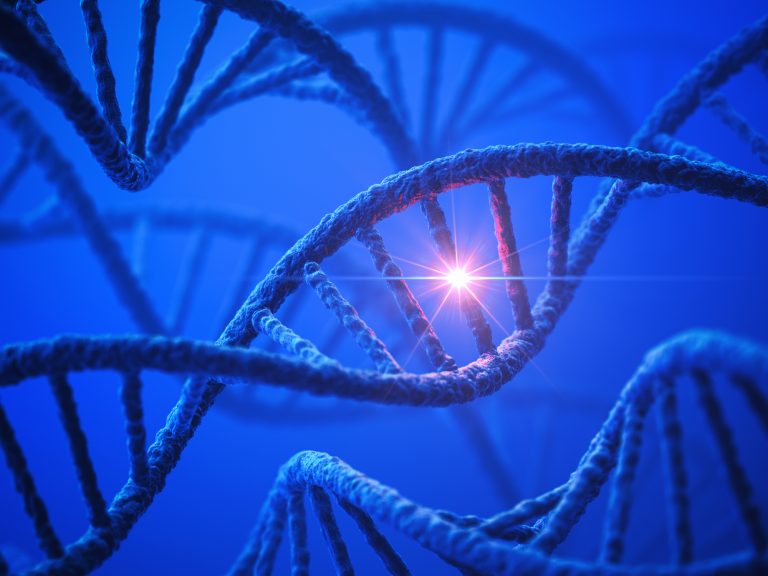
In a finding that bolsters the field of personalized medicine, a new large-scale study from the Mayo Clinic reports that one in eight cancer patients they followed had an inherited mutation that increases their risk of developing a malignancy. Further, the study showed that more than half of all patients with such mutations were being missed and therefore probably not receiving optimal treatment.
The study was carried out by scientists at Mayo Clinic’s Center for Individualized Medicine. They conducted genetic testing in more than 3,000 patients previously diagnosed with cancer at Mayo Clinic Cancer Center locations in Arizona, Florida, and Minnesota. Their report was published in the October 30 online edition of JAMA Oncology. doi: 10.1001/jamaoncol.2020.6252
“We found that 13.5% of patients had an inherited mutation in a gene associated with the development of their cancer,” says Niloy Jewel Samadder, MD, a Mayo Clinic gastroenterologist and hepatologist, who is the study’s lead author. “Everyone has some risk of developing cancer, and in most cases the disease develops by chance. However, some people are genetically predisposed to developing certain types of cancer, such as breast or colon cancers.”
The study confirms that nearly 10%-25% of cancer-causing mutations are inherited. It also suggests that patients with these mutations are being overlooked, when they could be candidates for targeted, or personalized, therapies – drugs that act specifically against target molecules or processes that are known to cause or contribute to the development or progression of cancers.
The market for targeted cancer therapies is one of the biggest and fastest growing sectors in all of pharmaceuticals. More than a dozen such treatments are already on the market and they are often given fast-track designation as candidate drugs, which makes them particularly lucrative development projects. This market currently includes multiple drugs for both solid tumors and blood cancers, including early entrants to this market: imatinib mesylate (Gleevec), trastuzumab (Herceptin), and cetuximab (Erbitux). Findings such as this one from Mayo clinic should encourage growth and expansion of this market.
In its two-year Interrogating Cancer Etiology Using Proactive Genetic Testing (INTERCEPT) study, Mayo Clinic provided free genetic testing and counseling to 3,084 Mayo Clinic patients as part of their standard cancer care. The project, representing the largest known multicenter study of universal testing of patients with cancer, included a broad mix of cancer stages and types, including breast, colorectal, lung, ovarian, pancreatic, bladder, prostate and endometrial cancers.
The researchers were surprised to find that the standard guidelines physicians relied on to determine which patients with cancer should undergo genetic testing only identified 48% of the patients with an inherited genetic mutation.
“More than half of the patients who developed cancer due to inherited mutations were being missed, and that has major implications for family members,” Samadder says. “Everyone has some risk of developing cancer, and in most cases the disease develops by chance. However, some people are genetically predisposed to developing certain types of cancer, such as breast or colon cancers.”
During the study, the researchers found that one-third of the patients with the highest-risk cancer genes had a change in their medical management when a mutation was discovered. That change could include the type of surgery or chemotherapy they received.
“This targeted treatment would have been lost if the patients had not received genetic testing,” Samadder emphasizes.
“Genetic testing is underutilized in cancer care, both for patients and for their families, often due to outdated guidelines that restrict testing to a narrow group of high-risk patients,” says Robert Nussbaum, MD, chief medical officer of Invitae Corporation. “All cancer patients should have access to complete genetic information that can guide their care and inform their families’ health.” Nussbaum was a contributing author on the study.
Besides helping to guide optimal treatment for current patients, testing for these mutations can also benefit family members by encouraging them to undergo early detection testing and to get proper treatment if they also develop malignancies.
“We can help prevent cancer in their loved ones because it is genetic, and they share these cancer-causing genetic changes with their children, siblings and others in their families,” Samadder explains. “We can target prevention strategies for those high-risk individuals and hopefully prevent cancer altogether in future generations of their family.”
In this Mayo study, all blood-related family members of patients found to have a genetic mutation were offered free genetic testing, and one in five of those people opted for testing. The researchers say that the next steps will be to incorporate the study findings into the care of all patients with cancer at Mayo Clinic.













